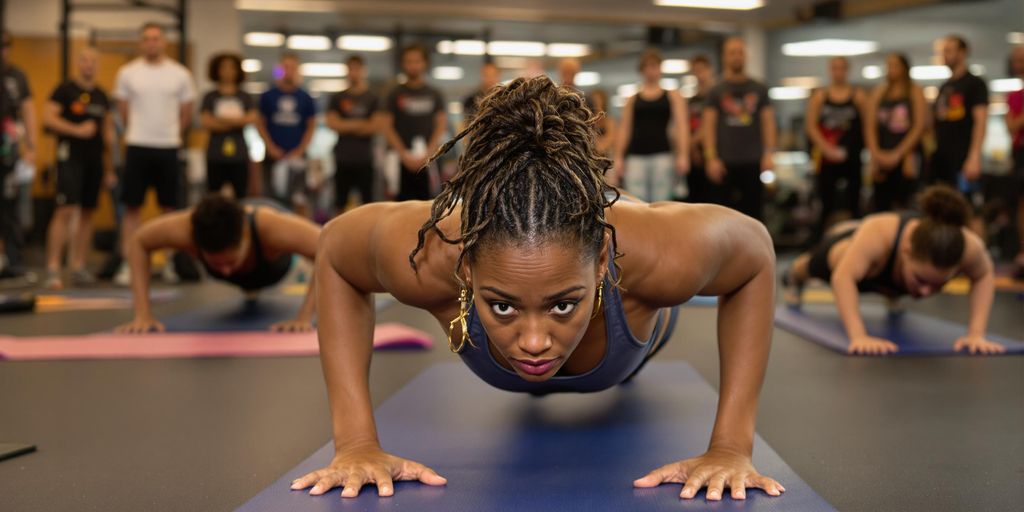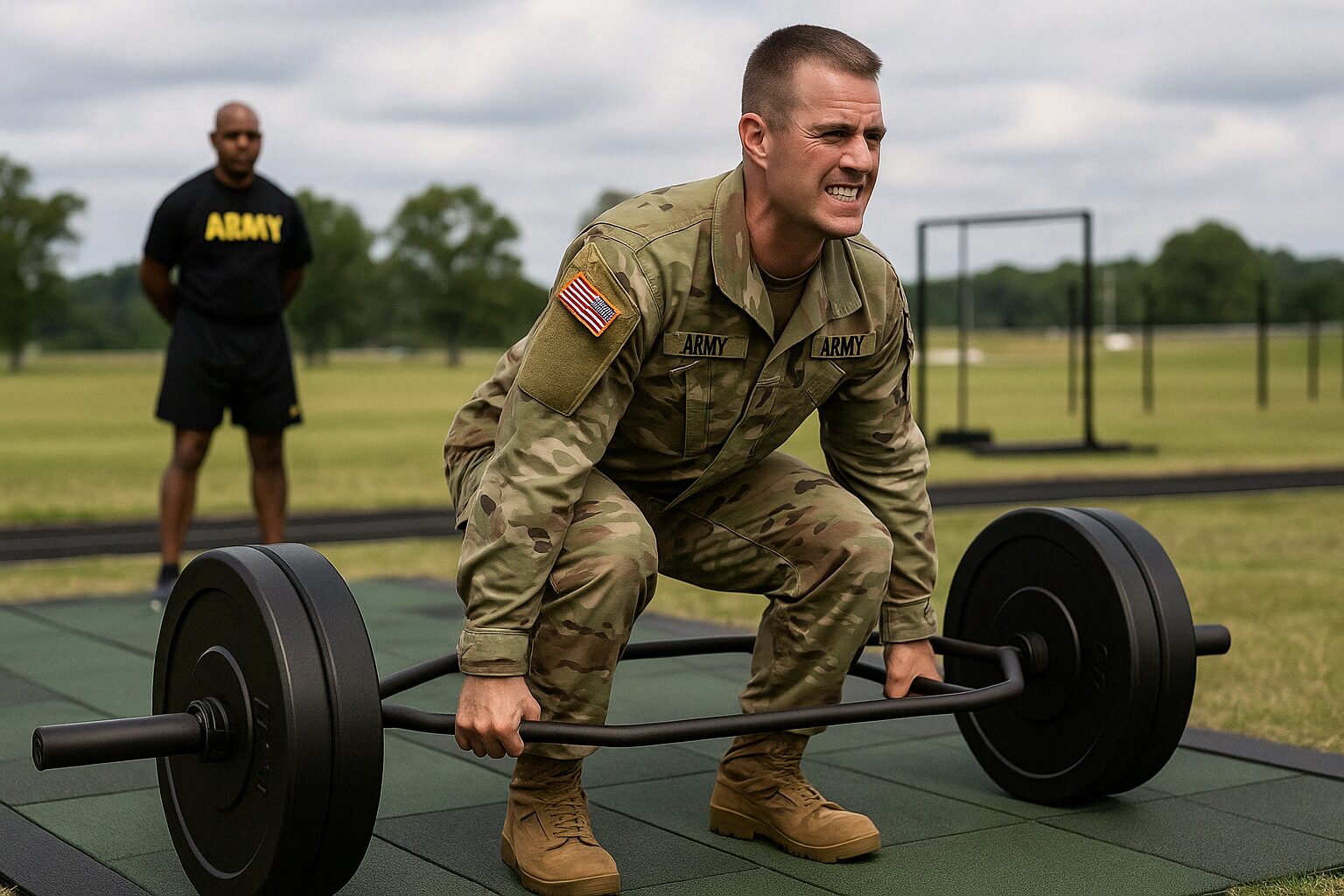The recent episode of the Mel Robbins Podcast has ignited a heated discussion among fitness enthusiasts and experts alike. During the episode, orthopedic surgeon Dr. Vonda Wright claimed that all women should be able to perform 11 push-ups, a statement that has drawn both support and criticism from the fitness community.
Key Takeaways
-
Dr. Vonda Wright suggests all women should be able to do 11 push-ups.
-
Fitness experts argue that this standard is arbitrary and not universally applicable.
-
Personal fitness goals should be individualized rather than based on a one-size-fits-all benchmark.
The Podcast Episode
In a recent episode, Mel Robbins, a well-known motivational speaker and author, hosted Dr. Vonda Wright, who shared her insights on women’s fitness. Wright emphasized the importance of strength training and suggested that being able to do 11 push-ups is a crucial benchmark for women. When Robbins inquired if knee push-ups would suffice, Wright firmly stated that they would not.
This assertion quickly gained traction on social media, prompting many women to attempt the challenge. However, the question remains: is the ability to do 11 push-ups a realistic or necessary goal for all women?
Expert Opinions
Fitness professionals have weighed in on the controversy, highlighting several key points:
-
Arbitrary Standards: Many trainers believe that the 11 push-up standard is not based on scientific evidence applicable to women. For instance, Katie Gould, founder of KG Strong, noted that the original study linking push-up performance to health outcomes was conducted on male firefighters, making it irrelevant for women.
-
Individual Fitness Levels: Danielle Repetti, head coach at Iron and Mettle, emphasized that fitness goals should be personalized. Not every woman will have the same strength capabilities due to various factors such as age, body type, and physical conditions.
-
Alternative Measures of Strength: Experts argue that push-ups are just one of many ways to measure strength. They suggest focusing on personal fitness goals that make individuals feel good rather than adhering to a specific number of push-ups.
The Importance of Personal Goals
Setting fitness goals should be a personal journey. Here are some considerations:
-
Personalization: Each individual’s fitness journey is unique. Goals should reflect personal aspirations rather than societal expectations.
-
Avoiding Discouragement: An arbitrary benchmark like 11 push-ups can lead to feelings of inadequacy. It’s essential to foster a positive relationship with fitness.
-
Diverse Strength Indicators: Strength can manifest in various forms, and push-ups are not the sole indicator of fitness. Other exercises can effectively build upper body strength without the need for traditional push-ups.
Building Towards Push-Ups
For those who aspire to achieve the 11 push-up goal, experts recommend starting with modified versions:
-
Knee Push-Ups: A good starting point for beginners.
-
Incline Push-Ups: Using an elevated surface can help build strength gradually.
-
Progressive Training: Gradually lowering the surface as strength improves can help in achieving full push-ups over time.
Final Thoughts
The debate surrounding the 11 push-up challenge highlights the need for a more nuanced understanding of fitness standards for women. While push-ups can be beneficial for building strength, they should not be viewed as the definitive measure of a woman’s fitness. Ultimately, personal goals and a positive approach to fitness should take precedence over arbitrary benchmarks.
Frequently Asked Questions (FAQs)
Who is Dr. Vonda Wright, and why is her statement controversial?
Dr. Vonda Wright is an orthopedic surgeon who appeared on the Mel Robbins Podcast and stated that all women should be able to do 11 push-ups. The controversy stems from how this statement has been perceived as a universal standard, which many fitness experts argue is unrealistic and unscientific for the general female population.
Is there scientific research supporting the 11 push-up benchmark for women?
No. The commonly referenced study linking push-up performance to health outcomes was conducted on male firefighters. Fitness professionals argue that using this study to set standards for women is misguided and not scientifically valid.
Should push-ups be a standard fitness goal for all women?
Not necessarily. While push-ups are a great strength-building exercise, fitness goals should be personalized based on individual health, ability, and lifestyle. There’s no single number that defines overall fitness for everyone.
Can modified push-ups still help build strength?
Absolutely. Knee push-ups and incline push-ups are excellent starting points for building upper body strength. Progressing gradually can help people safely work up to traditional push-ups, if that’s their goal.
What are some other ways to measure strength?
Push-ups are just one of many strength indicators. Others include planks, dumbbell exercises, rows, resistance training, and functional movement tests. What matters most is finding a method that feels effective and sustainable for you.
How do I set realistic fitness goals for myself?
Start by focusing on how you want to feel, not what numbers you should hit. Work with a trainer or health professional to develop a plan tailored to your goals, lifestyle, and physical condition. Consistency, sustainability, and enjoyment are more important than arbitrary benchmarks.
Is it okay if I can’t do 11 push-ups?
Yes—completely. Your worth and health are not defined by how many push-ups you can do. Focus on progress, not perfection, and celebrate the milestones that matter to you.




